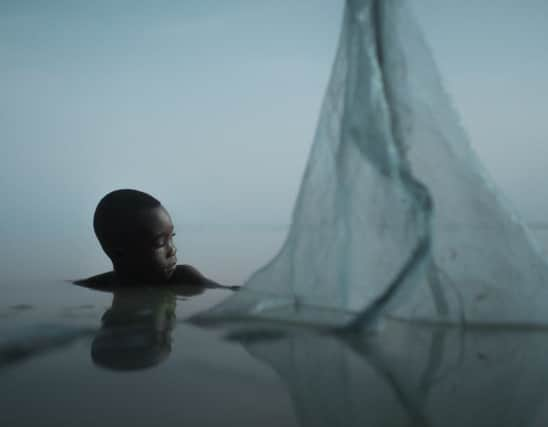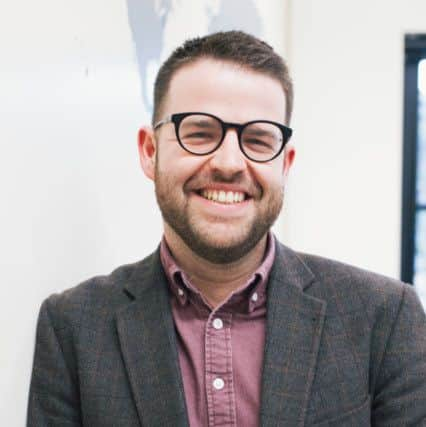Slavery is real and happening now in every country – Andrew Bevan


Slavery is bigger than ever before and as brutal as it’s ever been. People are experiencing violent abuse and exploitation on a daily basis. But there is hope – slavery today is also more stoppable ever.
As we mark Anti-Slavery Day today, here are three common misconceptions that we must be aware of as we fight this human rights emergency.
Advertisement
Hide AdAdvertisement
Hide AdFirstly, slavery is not a desperate choice made out of poverty. Twenty-year-old Amiyah wanted to eat her meal in peace. She saw two men out of the corner of her eye but ignored them and closed her eyes to pray for her food.


She blacked out. The men had drugged her water. When she awoke, terrified, she was in a brothel. As the youngest, she was forced to serve the most customers, 120-150 men a week.
The brothel was cramped and dirty, and none of the mattresses were ever washed. Windows were boarded up and every door was barred so no one could escape. One of the girls hadn’t seen sunlight for seven years.
Amiyah was in so much pain she could hardly stand when police and the International Justice Mission arrived at the brothel on the night of the rescue operation.
Poverty makes people more vulnerable to slavery – when you’re struggling to feed yourself and your family you are more likely to be tricked by false offers of a good job and a better life. But the reality is that slavery is a violent crime. It’s not a choice.
Slave owners and traffickers are experts in using lies, coercion, trickery and deception. They are criminals who steal people’s lives using whatever means necessary. They promise a good job, an education, hope. By the time people realise they have been tricked, it is already too late.
Secondly, slavery is not just about forcing women into sexual exploitation. While sex trafficking of women is a major global problem, people are also forced into slavery for labour, for their organs, as soldiers, for begging, or marriage.
In fact, 29 per cent of slavery victims globally are men and boys. Around 25 million people globally are in forced labour slavery. Many are making everyday products that we buy here in Scotland – everything from clothing, to coffee, chocolate, prawns and smartphones. There is no one typical victim of slavery, and no country where slavery does not exist.
Advertisement
Hide AdAdvertisement
Hide AdThirdly, slavery is a bigger problem today than ever before. Modern slavery is the third largest crime worldwide. Human trafficking is a $150 billion a year industry. Behind these statistics are real stories of real people living a daily nightmare.
Children like Foli. He was just a little boy when he was sold into slavery on a fishing boat on Lake Volta in Ghana. He and his friends were beaten, malnourished and sleep deprived as they worked from dawn until dusk. They faced a daily risk of drowning as they were forced to dive into the water to untangle nets caught on the branches below. When IJM worked with police to rescue Foli, he told our social workers: ‘Those children who can’t swim, they die.’
Millions of people around the world are trapped in violent exploitation, hoping for rescue as you read this.
The good news is that there is hope. Nelson Mandela once famously said: ‘It always seems impossible until it’s done.’ Ending the transatlantic slave trade seemed impossible to William Wilberforce, until it was done.
When individuals, NGOs, governments, corporates and civil society choose to take action on slavery it really does work.
In our own anti-slavery work, International Justice Mission has found that slave owners aren’t especially courageous. When local police are equipped to do their jobs – rescue victims, gather evidence, and apprehend suspects – and when local courts prosecute and punish them, the crime can dry up quickly.
IJM has seen incredible progress in recent years. By training and partnering with local law enforcement in Cebu in the Philippines, IJM saw an incredible 79 per cent drop in the number of children in the commercial sex industry over a four-year period. Change is happening and it’s possible. But we all need to play our part.
Today is Anti-Slavery Day. So let’s say no more to slavery. Let’s be the generation that believes for what seems impossible, that fights to end slavery in our lifetime. We know this is a fight we can win. Will you be a part of it?
To become an IJM Freedom Partner visit IJMUK.org/freedom-partner
Andrew Bevan, Scotland director at IJM UK.